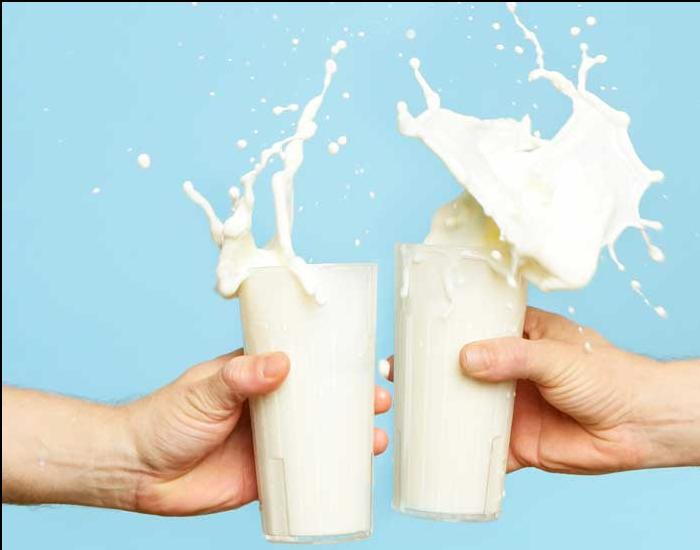Could drinking skim milk actually be bad for you?
posted: Jul. 30, 2018.

Anyone who’s been in the office has heard us constantly preaching against consuming large quantities of dairy. Dairy products, like milk and cheese, can increase body-wide inflammation which can lead to flare-ups in arthritis, colitis, and other inflammatory diseases. Inflammation aside, however, dairy can be a valuable source of nutrition when consumed in moderation and variety.
Humans can be born with an intolerance to a natural sugar present in dairy called lactose. Actually, 65% of people in the world are born with some degree of lactose intolerance and many people will develop intolerance in adulthood - it's technically “normal”! The smaller proportion of people who can digest dairy (without assistance) produce an enzyme called lactase, which allows them to break down lactose into its smaller parts which can then be digested. If lactose is not broken down, it can lead to abdominal distress including stomach pain, flatulence, diarrhea, and vomiting.
For many of us who can consume dairy, milk is often a staple item on the shopping list. Americans, at the end of the 2000s, consumed more fat-free or skim milk, accounting for about 70% of milk consumption. This fat-free trend kicked off mainly because of nutritional recommendations made in the 90s and 2000’s when people were pushed into eating less fat, because at the time we thought eating fat was the cause of increased rates of obesity and cardiovascular disease. Since then, we’ve learned a lot more about how fat works.
A study done in 2016 that measured whole milk vs. skim milk consumption in a population for over 15 years found that the skim milk group actually had worse health than the whole milk group. The majority of study participants who drank whole milk found they had a 46% less chance of developing diabetes. Not only that but a study published by the American Journal of Nutrition found that women who participated in the study who drank whole milk were 8% less likely to become obese or overweight.
The problem was that we thought consuming less fat would lead to less weight gain and less bad cholesterol - instead people tend to compensate for the reduced fat by consuming more sugar and carbohydrates that, after digestion, become fats anyway. Increased sugar, by the way, has the negative side effect of increasing the risk of insulin resistance and diabetes.
Some points on fat:
Fat is not your enemy.
There is such a thing as healthy fat.
Saturated fats are things like butter and animal fat - these can should be consumed intermittently to infrequently.
Unsaturated fat is anything liquid at room temperature like olive oil or vegetable oil.
Both are good for you.
Trans-fats like those found in processed food, fried food and baked goods are the only fats you'll want to avoid.
We need fats for their high calorie content, for energy storage, and for processing certain vitamins and minerals.